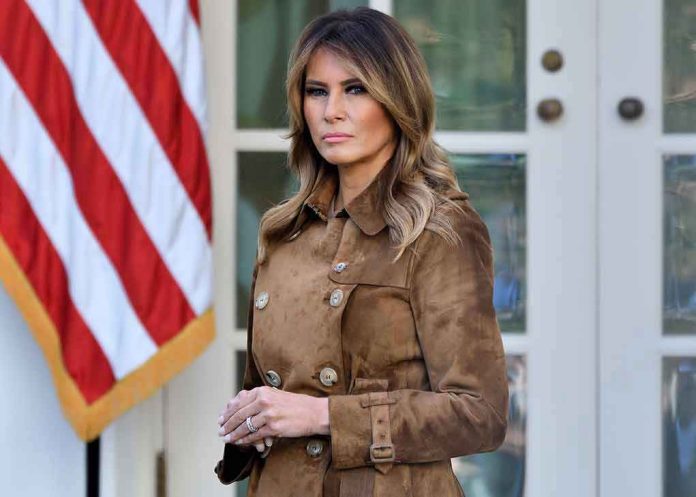
Melania Trump’s laughter at a Vanity Fair cover offer reflects a deep-rooted skepticism toward mainstream media narratives that many conservatives share.
Story Highlights
- Melania Trump declines Vanity Fair cover, highlighting media bias concerns.
- Conservative supporters view this as a stance against liberal media agendas.
- The rejection underscores ongoing cultural divides in the U.S.
- Trump’s decision resonates with those frustrated by past media portrayals.
Melania Trump Rejects Vanity Fair Offer
In a move that resonates with many conservatives, Melania Trump reportedly laughed off an offer to appear on the cover of Vanity Fair, a prominent publication often associated with liberal viewpoints. This decision aligns with a broader sentiment among conservatives, who feel marginalized by media outlets perceived to push leftist agendas. The rejection serves as a symbolic gesture, reinforcing the divide between conservative values and mainstream media portrayals.
The First Lady’s decision to turn down the Vanity Fair cover offer is not merely about personal preferences but reflects a wider cultural and political statement. The Trump family continues to be a focal point for media scrutiny and public debate. Melania’s refusal to engage with Vanity Fair can be seen as a critique of what some conservatives perceive as biased media narratives that have long targeted the Trump administration and its supporters.
Cultural Divides and Media Bias
Melania Trump’s refusal to participate in a high-profile magazine feature highlights the ongoing cultural divides in America. Many conservatives feel that mainstream media outlets often misrepresent their values and concerns, promoting instead a ‘woke’ narrative that conflicts with traditional American principles. The rejection of Vanity Fair is a stand against what is perceived as a liberal stronghold, echoing a sentiment that has fueled discussions about media bias and its impact on public discourse.
This incident has sparked a conversation about the role of media in shaping political and cultural narratives. Supporters of the Trump family view this move as a victory against a media establishment that has frequently been accused of partisanship. For many, Melania’s laughter at the offer is a refreshing act of defiance against liberal media outlets, reinforcing a commitment to conservative values and skepticism about media motives.
Implications for Conservative Media Strategy
The broader implications of Melania Trump’s decision extend to the conservative media strategy. As the Trump administration navigates its current term, the focus on media representation becomes increasingly significant. By rejecting an offer from Vanity Fair, Melania Trump underscores the importance of alternative media platforms that align more closely with conservative viewpoints. This strategy aims to counteract perceived media bias and provide a more balanced representation of conservative perspectives.
As media landscapes continue to evolve, the rejection of Vanity Fair by a high-profile figure like Melania Trump suggests a strategic pivot towards media outlets that do not conform to traditional liberal narratives. This move reflects a broader trend within conservative circles to challenge mainstream media dominance and seek platforms that resonate with their values. The emphasis on alternative narratives is central to the conservative agenda, aiming to reshape public understanding and counteract perceived misinformation.
Sources:
Encounters with the Information Society (James Stewart, 2002)
Melania Trump ‘laughed’ at Vanity Fair offer, rejected magazine: sources
Melania Trump ‘laughed’ at Vanity Fair cover offer
The inside story: How Melania Trump reacted to Vanity Fair cover offer


